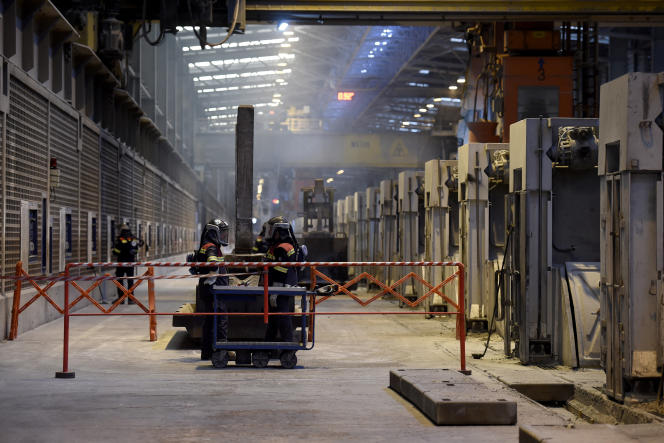The arrival of the Taiwanese ProLogium in Dunkirk (North) to install what will be the fourth electric battery factory in France was the pretext for Emmanuel Macron’s visit to the port city on May 12. He had traveled to this historic industrial territory of Hauts-de-France mainly to talk about reindustrialization. In recent months, good news has been coming for this area, which has painfully experienced the closures of the French shipyards, its refineries, and the reduction in its steel activity. Usinor has disappeared and ArcelorMittal only employs 3,000 people in Dunkirk. Four times less than in the 1960s.
In a region of Hauts-de-France which aims to become the first European valley for electric batteries, Dunkirk will play the role of locomotive: alongside ProLogium, the Grenoble start-up Verkor, which has just raised 2 billion euros , plans to commission its factory on an 80-hectare site in 2025.
That’s not all. The city was also chosen by SNF (the world’s leading producer of polymers for water treatment) and by the joint company between the Chinese XTC New Energy (supply of materials for electric vehicles) and Orano (formerly Areva) for establish there, still at the port, their three component and battery recycling factories. Add to this the enormous warehouse of the American PSA BDP to store everything and you draw the contours of a new industrial giant which will profoundly change the future of Dunkirk and French industry.
If most of the new establishments are linked to electric mobility or decarbonization, the French port has also attracted the Belgian Clarebout, one of the world leaders in frozen potato products, or even H2V, specialized in the production green hydrogen.
“Imagine a new model”
In total, 20,000 new jobs will be created by the end of the decade. “It’s considerable. It will be an even bigger shock for Dunkirk than its industrial boom in the 1960s”predicts Patrice Vergriete, mayor of Dunkirk (various left) since 2014 and minister of housing since July 20.
He has a lot to do with it. Last week, he spoke in front of the Grand Lille committee, which brings together the elite of the economic world of Hauts-de-France, to explain the “Dunkirk miracle”. In the office he occupies at the Dunkirk urban community, Mr. Vergriete is playing the game again. At odds with the socialist Michel Delebarre (1946-2022), his predecessor at town hall, to whom Dunkerque owed its first reindustrialization in the years 1990-2000 – with the groups Coca-Cola, BASF, Aluminum Dunkerque (ex-Pechiney) and the arrival of the LNG terminal – this son of a shipyard worker who studied at Polytechnique was on the verge of leaving the city. It stayed and no one complains about it here.
You have 52.87% of this article left to read. The rest is reserved for subscribers.
